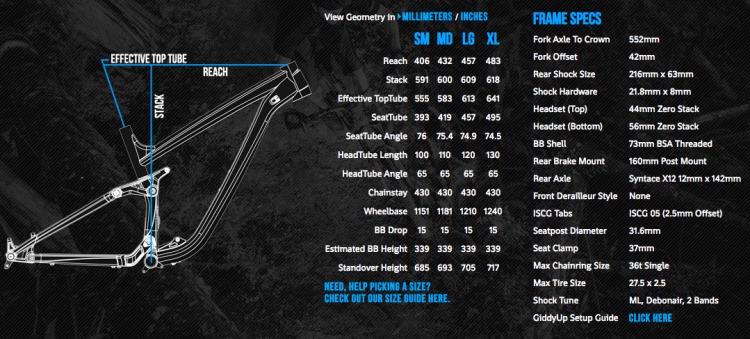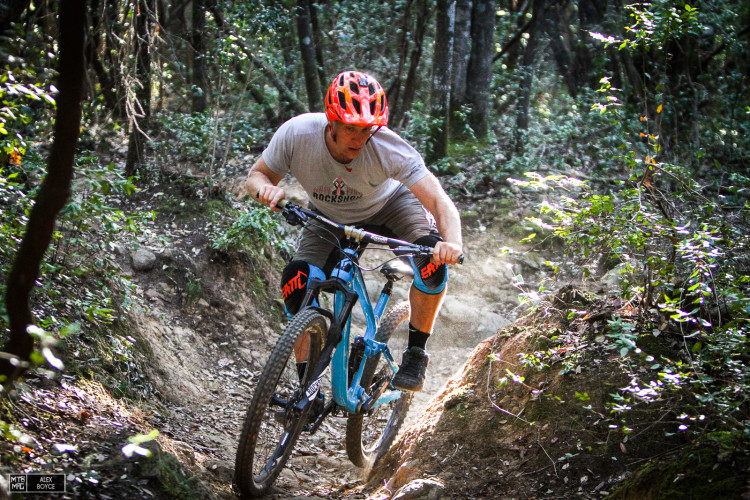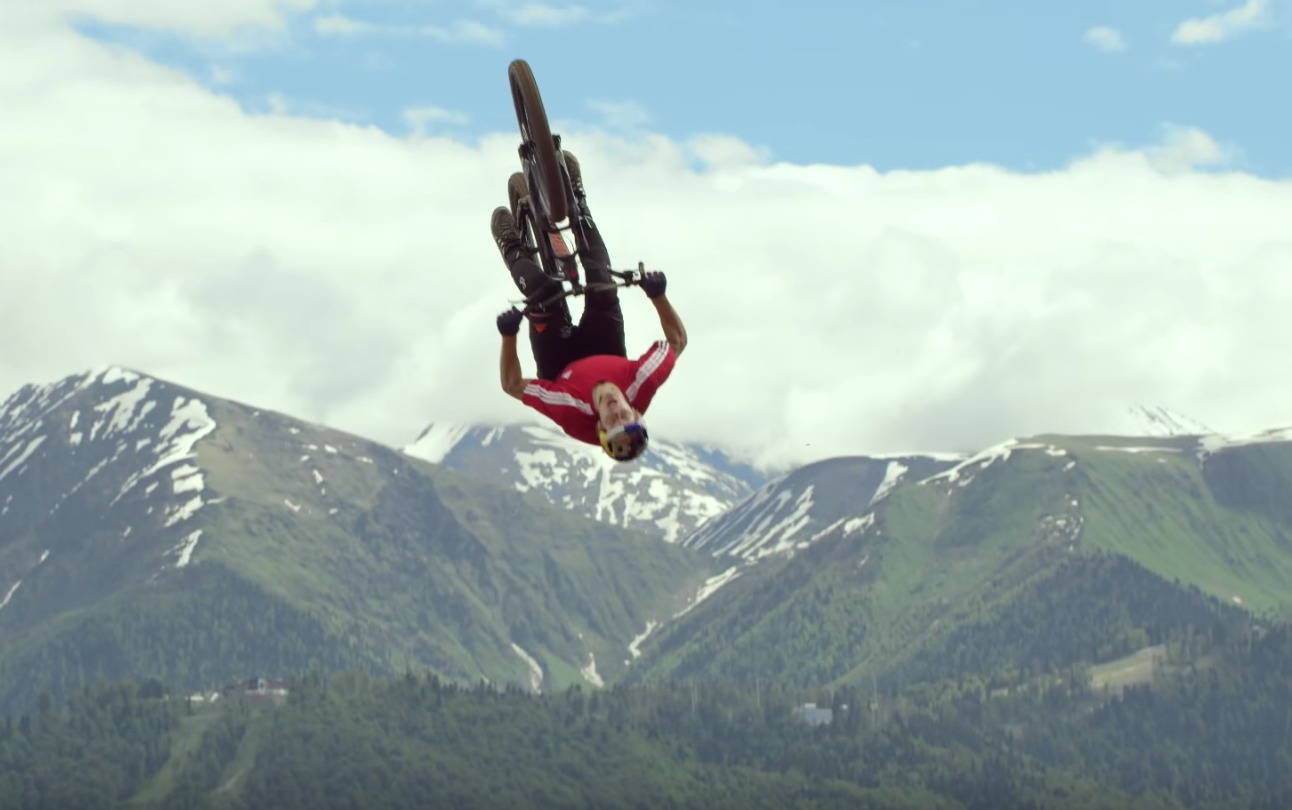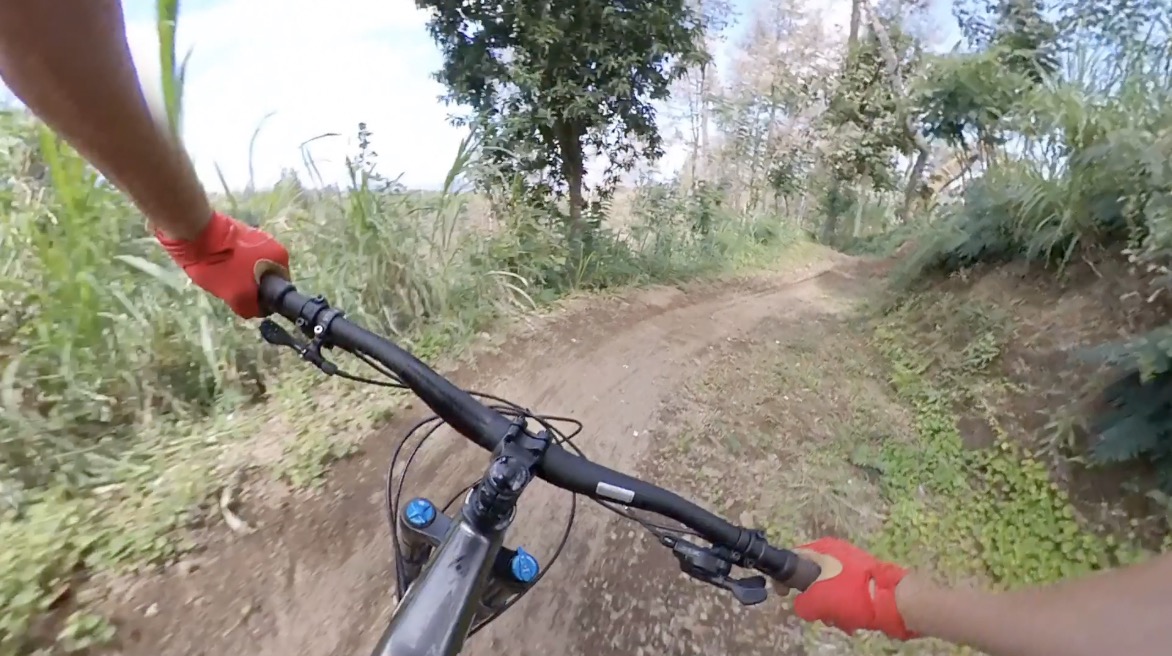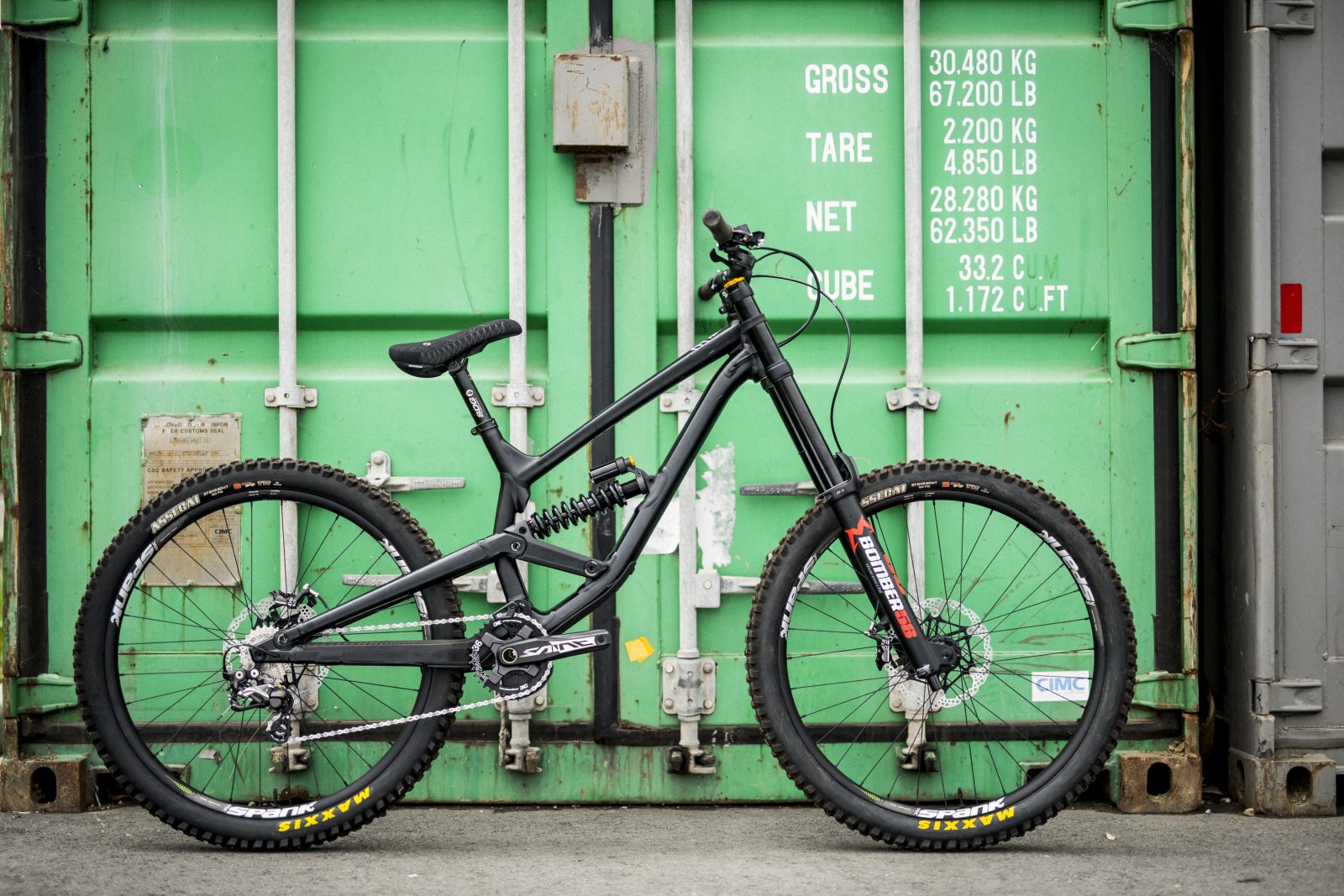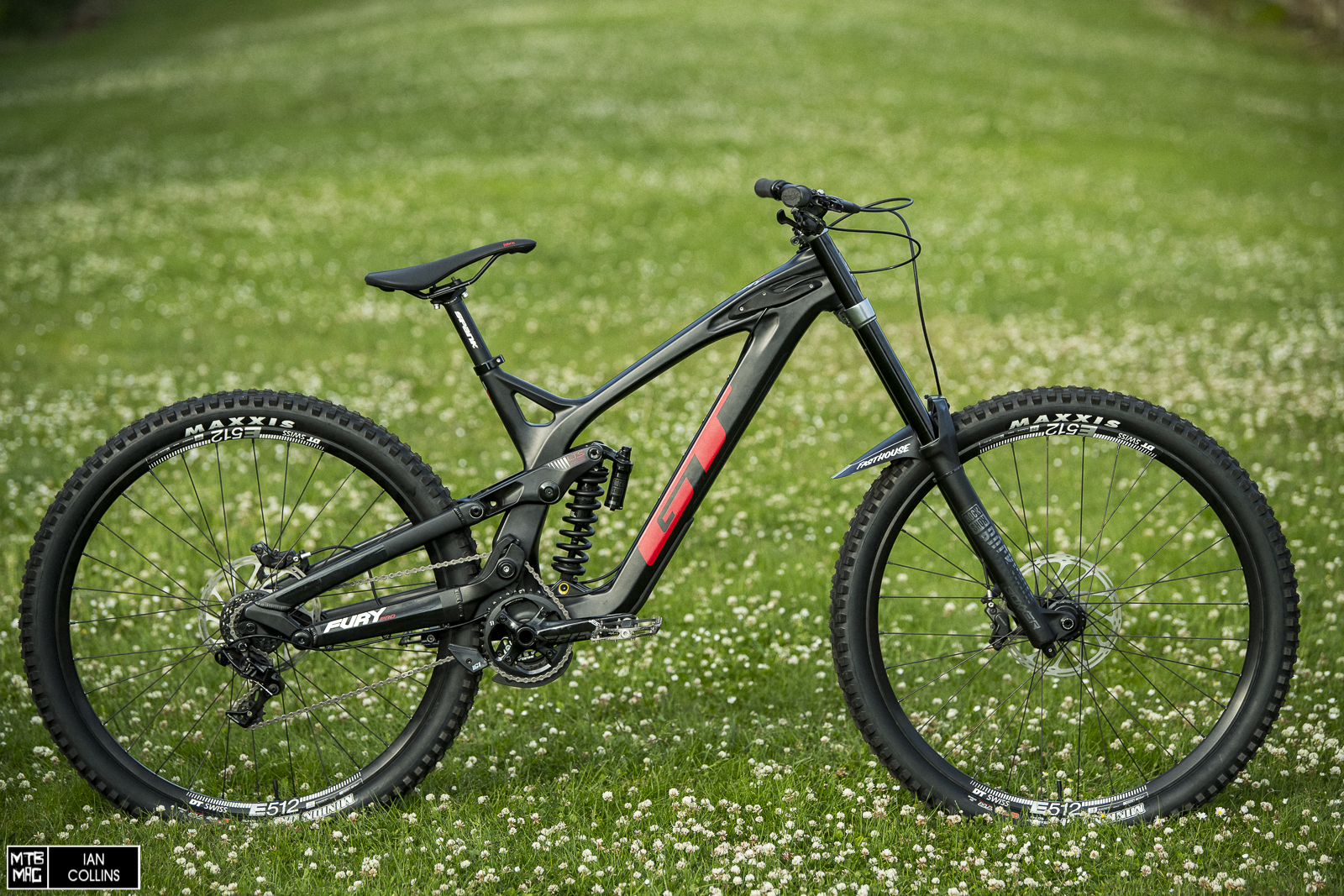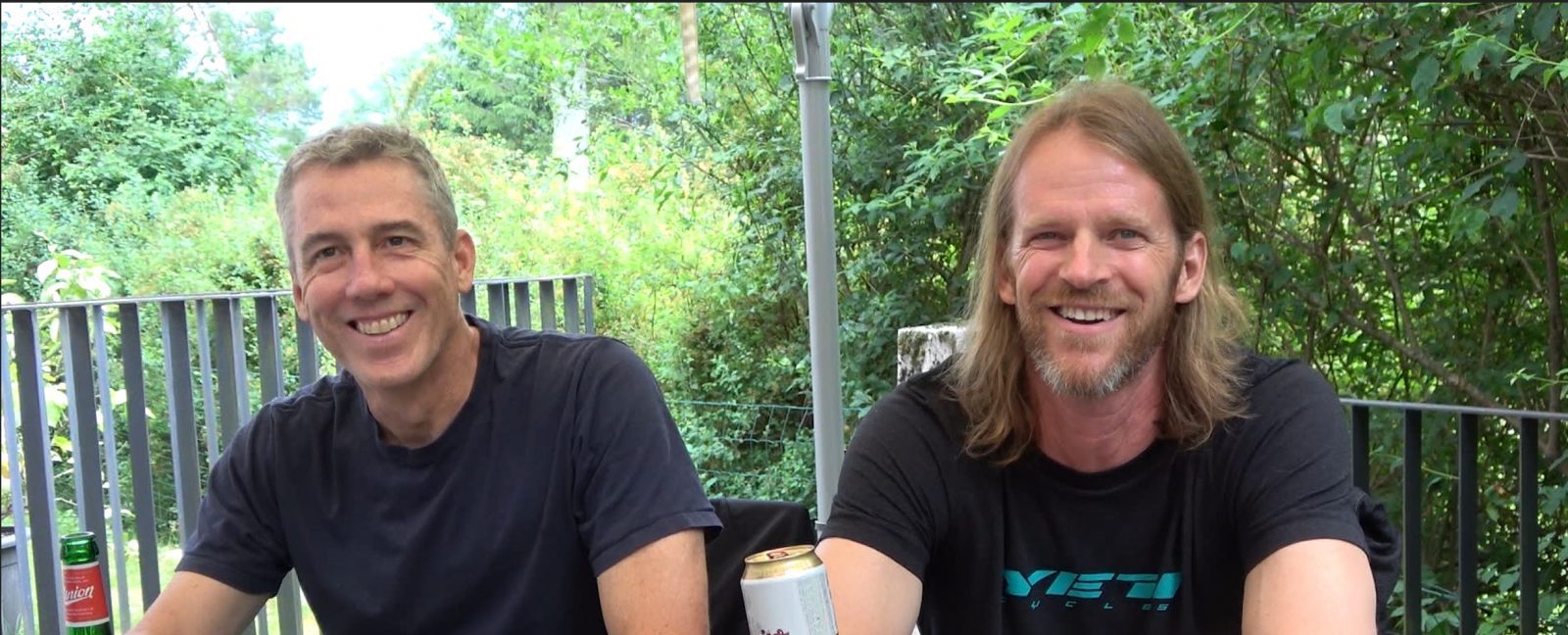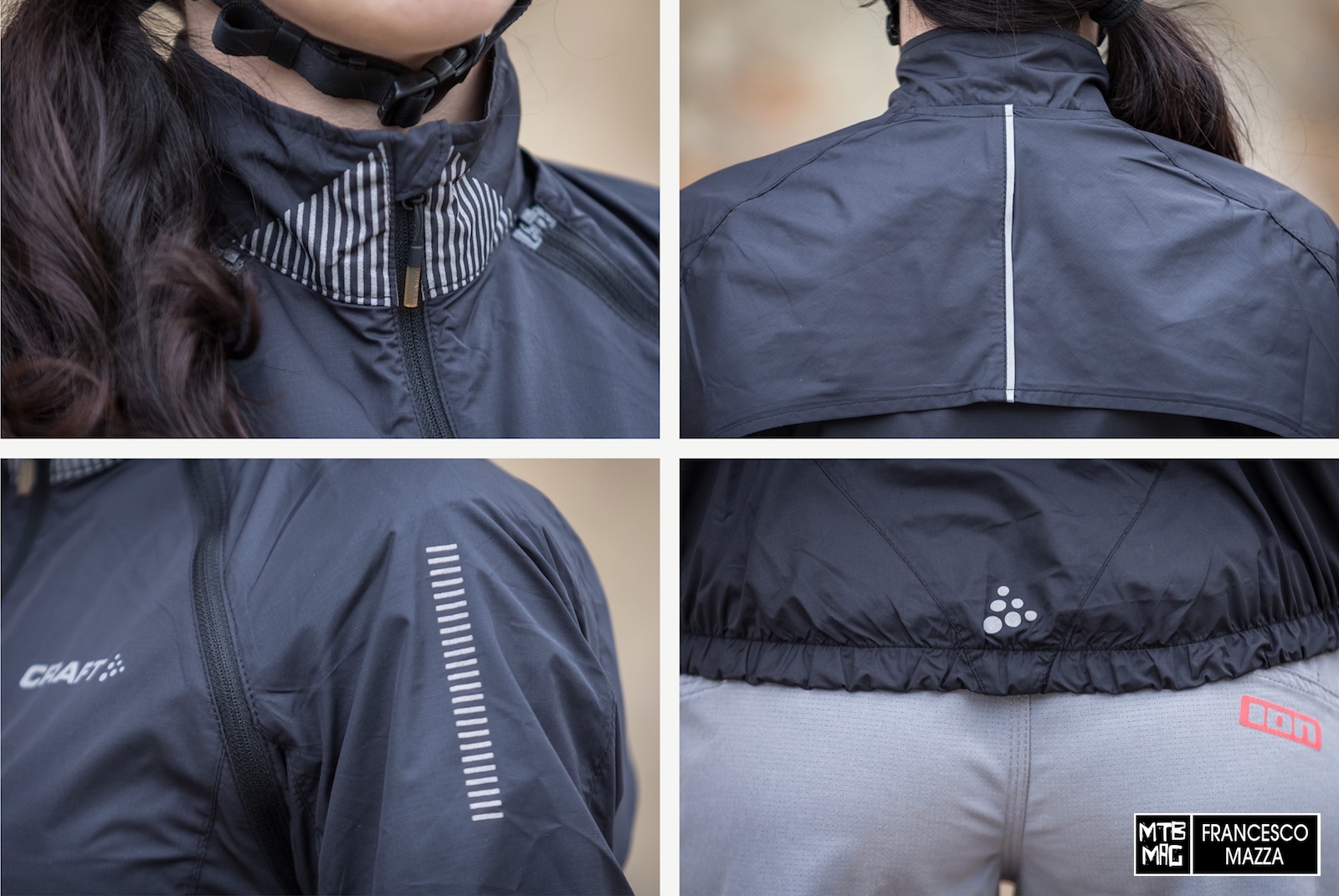[ad3]
Transition Bikes recently sent us a Carbon Patrol as our seasonal test bike, which we have been putting through its paces at Punta Ala. The key to any bike is the frame and this is what we will be focusing on in our review.
Our first build was a baseline and surprised us a lot with the quality & performance to price ratio. Our second build is going to be full XTR, more on that when it is built.
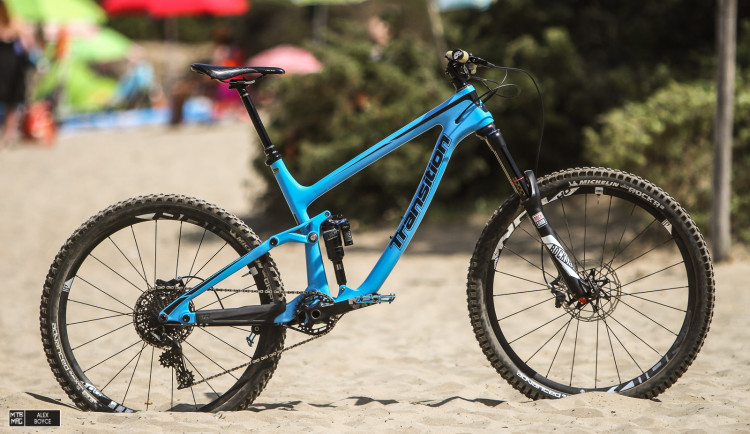
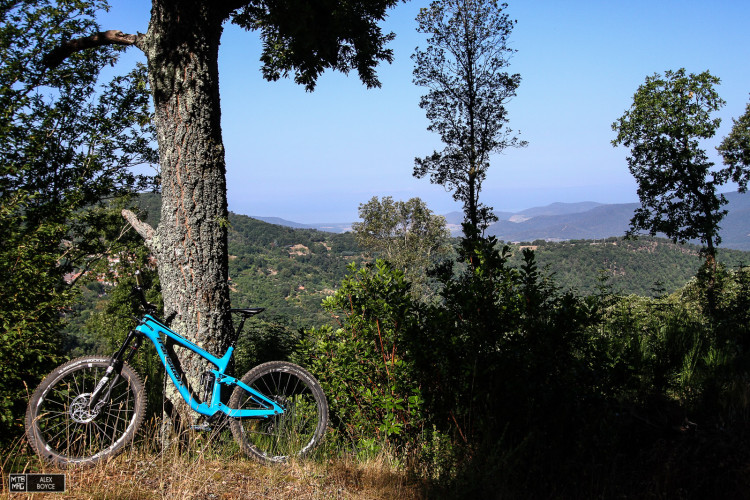
Specifications
Transition have spent a lot of time on creating a modern carbon frame that is strong, light and versatile. The numbers are clear that stability and speed is the aim, a long front center with 457mm of reach and a short chainstay length of 430mm. This puts the bike ahead of many competitors when it comes to overall wheelbase at 1210 for the large size test frame. It is almost in DH frame territory when you factor in the wheel base and headangle, being only 7mm shorter than a Santa Cruz V10. The seat tube angle is respectable for pedal input, and gives an overall compromise of speed and agility vs pedal input energy reactivity forwards.
Weight: 3.08 Kg / 6.8 lbs.
Frame Set Price: €3399
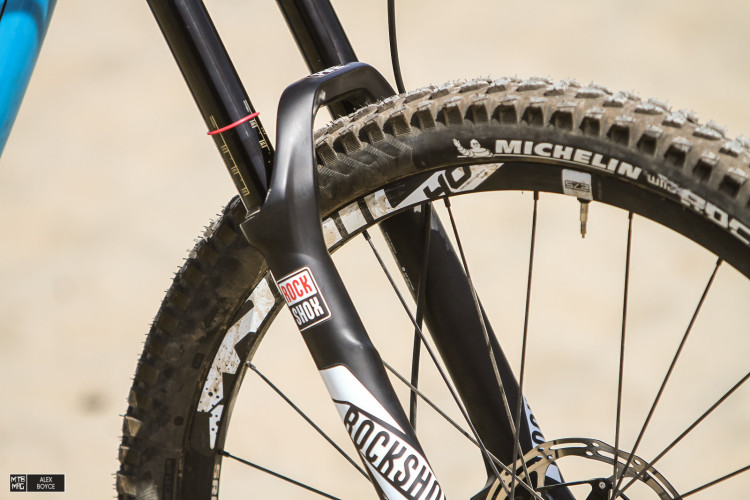
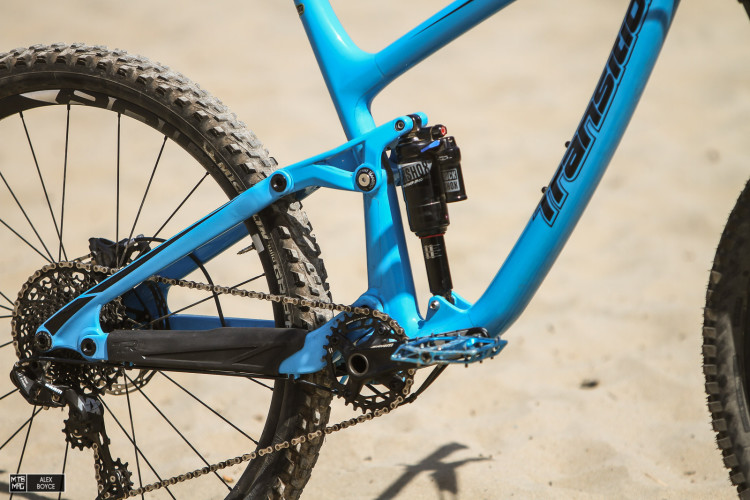
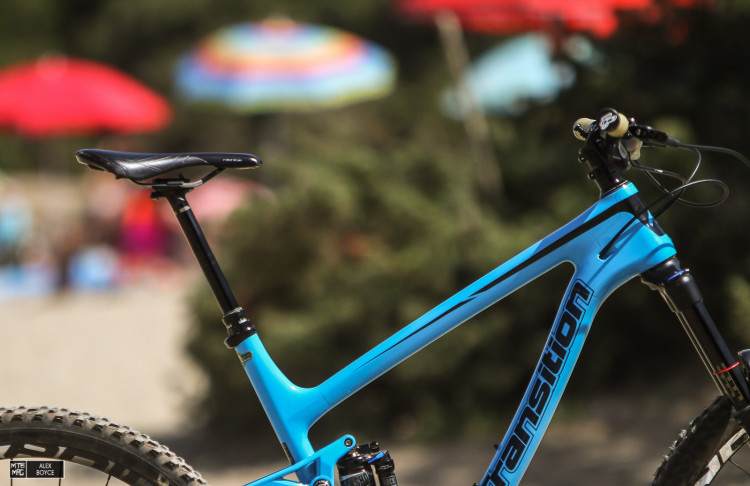
On The Trail
Climbing – We spent many hours in the first weeks aboard the Patrol pedaling around Punta Ala, which has a good variety of climbs to try. With a fairly long bike, twisty uphills we thought would be hard to take in, but it seems not. The short rear end kept things moving well around corners on the way up, which surprised us. The ample reach did encourage us to position our body weight well over the front wheel if we wanted to maintain grip and avoid washing out.
The giddy up rear suspension is ideal for climbing smoothly. Transition and RockShox have done a good job in maintaining a steady shock platform that does not bob too much when our shock unit was in closed mode. When in open mode, although there is a slight amount of movement in the system, it was nothing that made us feel it was totally sapping energy, a big surprise for a bike that is clearly destined to head downhill.
Descending – We hurried on up to the top of the hill as quickly as possible for our first ride; excited and interested to experience what the Patrol could do.
First, despite the bike having “only” 160mm of travel, it feels like it has more. The slack head angle meant that on steep sketchy descents, we felt at ease. There were a lot of awkward holes and cross cambers into corners on our Tirli test trail, where our previous test bike could put us into a bit of a panic state. With the Patrol Carbon we breezed through these parts as the bike made the trail feel less steep. Rough sections were gobbled up by the smooth four bar linkage working behind us. When we found rocky holes on corners we could still find a balance point and ease the bike around without losing stability.
The Patrol had a very plush yet active feel to it, which we liked a lot. Pedal energy feedback when faced with a short up hill was good and we were able to maintain speed pretty well and flow through upcoming descending sections nicely.
Rough chatter was not really that noticeable, with the bike continuously flowing down the trail in a similar way to a DH bike. The 65 degree head-angle was making it clear to us that we can let the brakes off and go fast when we wanted. Popping off drops or over jumps was effort-less and super smooth. In one case when we pitched the bike too far forward, as we were riding fairly slowly, the bike kept its stability and we pushed through our error. Past experiences in this situation would have lead to an over the bars moment.
Setting up the suspension for the variety of trails at our disposal was easy, with 30 percent of sag front and rear. With the use of carbon it is important to get your suspension setting right as the extra stiffness within the frame structure makes the ride feel more immediate, a few PSI can make a difference to how well the bike handles the trail, so we recommend taking the time first time to set it correctly, this is true of all carbon framed bikes.
Cornering – The short rear chain-stays when combined with the longer reach leads to a bike that gives the rider many possibilities to find his own ideal body position for high speed cornering. Loading the front wheel meant you could rail corners pretty well, with the corner exit being smooth and the bike setting itself up well for the next trail feature.
Tight switch backs were no problem, learning to trust how far you could put your weight forward was key when learning to put the bike around tight corners. This led us to playing with our tyre pressures a bit to make sure that we had enough flexibility in the tyre to support our desire to push hard and maintain grip in the corners. We were running a Michelin Wild Rock’R/Wild Grip’r tyres combo, that is robust and worked really well with the Patrol’s smooth, fast riding style. In corners the carbon frame reminded us of many years ago on our first rides with carbon, except with modern geometry these current bikes are more forgiving of rider error.
Conclusion
Enduro bikes have come a long way in the last four years with the Transition Patrol Carbon being more like a mini DH bike on descents but at the same time managing to be nimble enough on ascents to keep us happy and moving upwards efficiently. These characteristics made us really enjoy our riding and settle in very quickly.
So far the Patrol is extremely smooth and quiet, it liked to be ridden fast. It is has a very forgiving ride that will give pretty much anyone of any skill level the chance to improve their top speed. At the same time the rear end is short enough that quick changes of direction can be handled easily and smoothly enough that give a very stable yet playful ride.
The use of carbon as the frame material and the finish of the bike gave the Patrol an excellent feeling when it comes to product quality and performance. We think that if you are looking for a fast, smooth, well made Enduro bike, that you can ride in a huge variety of conditions, the carbon Patrol should be one of the bikes at the top of your list.
Transition
Test Center Location: Punta Ala
[ad45]


